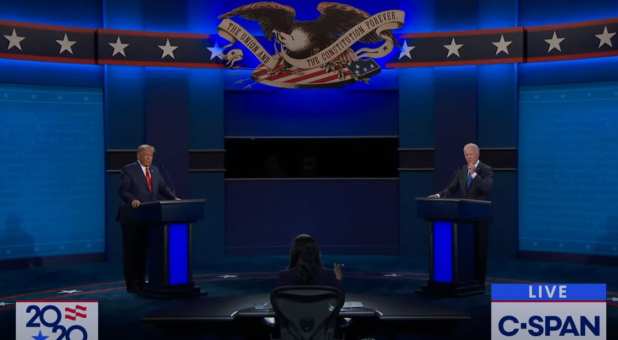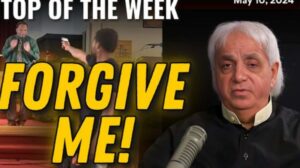Late in the 2016 presidential election, the angst, fatigue and pressure of the election were wearing on both the candidates and the electorate, much as it is now in 2020. Hillary Clinton was in a bitter campaign battle with then private citizen Donald Trump. In a weak moment out of frustration, Secretary Clinton lashed out at the supporters of Donald Trump calling them “deplorables.”
It became a seminal moment. Why?
Hillary Clinton failed to recognize that 67% of the people held her in negative opinion. In the heat of battle, it is almost impossible to relate to those who hold you in contempt. However, candidates often fall into the trap of showing little compassion for those with whom they disagree.
The term “deplorables” has become an iconic statement of perpetual resonance, much like Arnold Schwarzenegger’s famous line in the first Terminator movie, “I’ll be back,” or Humphrey Bogart’s classic line in Casa Blanca, “Here’s lookin’ at you, kid.” The phase carries a lasting emotional effect. It means different things to different people. T-shirts with the phrase “I’m a proud member of the deplorables” are still prevalent and currently for sale. Twenty-five years from now, and maybe longer, the context of Hillary Clinton’s demeaning remark will be taught as a case study of presidential politics in its application of political science.
Immediately after rendering the labeling, undecideds began to break for Donald Trump. It wasn’t that it was a final straw or shed any new light on policy divisions. By that time in the election cycle, the public was numb to both candidates’ rhetoric. What it did was cause undecideds to choose the candidate least offensive. Donald Trump’s negatives were 66%. Two-thirds of the American public voted for a candidate in 2016 that they didn’t like personally. The “deplorables” comment personified Hillary as the least acceptable choice.
Recently, President Trump lashed out in frustration at Dr. Anthony Fauci and other scientists, calling them “idiots” for their advocation of more caution in dealing with the COVID-19 crisis. He did this at a critical point in the pandemic debate in that cases are on the rise in 38 states. Hospitals ICU beds are again reaching full capacity. Undecideds may feel emotionally that this is an unacceptable statement for a leader to make. It is not that it is the final straw or shed any new light on policy divisions. By this time in the current election cycle, the public is numb to both candidates’ rhetoric. What the “idiots” statement may do is cause the undecideds to lean more toward the candidate they feel is less judgmental.
In 2016, Hillary Clinton’s deplorable comment didn’t change any partisan votes one way or the other. But it did have a demonstrable effect on the undecideds. If they were going to vote for someone they didn’t like, they would not vote for someone who condemned, in this case, a group of people for their opinions.
In 2020, President Trump’s comment also did not change any partisan votes. But it may have had a substantial effect on the undecideds. The public is very concerned about COVID-19. It is not just the fear of catching it. It is the real concern of how to manage it. Lashing out at scientists, demeaning them for their opinion, may be found to be unacceptable to the civil, moral sensitivities of the undecideds.
In the most recent WSJ/NBC News poll, 56% of the American public prefer President Trump’s policies. Thirty-five percent favor Vice President Biden’s policies. Joe Biden is winning this election based on the perceived coarse character of the president. To a majority of Americans in this election, personality, therefore, is more important than policy. To be undecided means that you want to vote for a candidate’s policies, but the candidate’s personality is weighing heavily.
In 2016, Hillary Clinton lost undecided votes because she attacked adversaries for being less than her equal intellectually. It is yet to be seen whether President Trump’s attack on scientists is his “deplorables” moment. Whether or not it will have the same tipping effect on those voters still struggling as undecided will be determined in the next two weeks. Whether we will see the words “these idiots” on a T-shirt four years from now or not is yet to be seen.
Just as in 2016, this presidential campaign process will continue to be a screaming match to the very end. In the final hours of the election, the public will be exhausted, thankful for an end to it all. What’s most important to consider now is how each of us think through and prepare to be part of the healing process. Regardless of who wins on Nov. 3, America still faces tremendous challenges. COVID will still disrupt our everyday lives in some capacity for at least another year. As the nation recovers, the economy must be restructured. Many old jobs have disappeared forever. There will be catch-up required for our children’s education. And, of course, all of the societal ills that have bubbled up to the surface of reality’s perception must still be addressed.
Take a deep breath. Begin to visualize an America from a point of view, without exception of the public’s electoral decision, that can produce hope through healing by a common commitment for a common purpose.
Our only hope is a common destiny that achieves our individual dreams. {eoa}
See an error in this article?
To contact us or to submit an article























